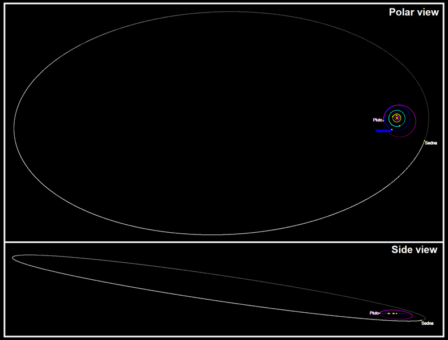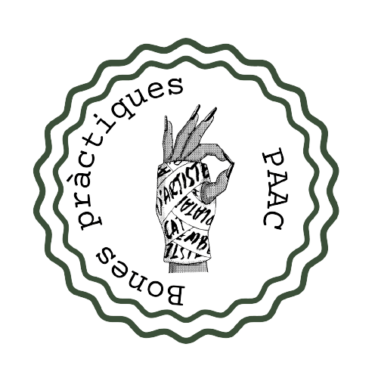Racor results: research residency grant in art, science, technology and society between Donostia/San Sebastian and Barcelona

On 8 May, the jury, made up of Susana Arias (CCCB), Clara Piazuelo (Racor research associate), Ane Agirre (Tabakalera) and Anna Manubens (Hangar), selected the project Sedna by Constanza Piña [Corazón de Robota] as the winner of the RACOR grant.
In its first edition, 78 applications were received and the jury would like to thank all the candidates for their energy and commitment in writing their proposals and presenting themselves in the context proposed by RACOR.
Sedna is a multi-channel scientific-poetic narrative about the metallic lament of the Earth, bringing together different voices of speculative organic, mineral and celestial bodies. Starting from the extraction of minerals in the Chilean Andes, specifically in the Atacama Desert, the piece aims to establish a nostalgic (science) fiction dialogue between the Earth and the distant dwarf planet Sedna, which lies beyond the orbit of Neptune. This remote object is in fact the most distant object in the Solar System, belonging to an obscure and unknown place in the Galaxy: the hypothetical Oort Cloud, and is composed of rock, ice and icy gases. Sedna is named after an ancient Inuit goddess, queen of the Arctic seas and the dark, icy world. According to Inuit mythology, Sedna’s spirit watches over the dark waters and, in response to our evil deeds, sends storms that seep into the water and pollute the ocean.
Constanza Piña grew up in South America, between the white noise of the Pacific Ocean and the mineral-laden Andes, a specific electromagnetic background that influenced her imagination from an early age. Her artistic research explores noise as a sonic, social and cultural phenomenon. Her practice is technofeminist in approach, combining contemporary technologies with traditional craft techniques, developing open hardware devices, DIY electronics, e-textiles, analogue synthesizers and experimental antennas.
RACOR is a pilot programme promoted by Hangar, Centro de Producción e investigación Artística, Tabakalera, Centro de Cultura Contemporánea de Barcelona (CCCB) to support an artistic research project that needs the contexts, networks and/or services of the three centres for its development and that creates a space for interlocution between traditionally separated epistemic fields. The cross-residencies will be accompanied by a research layer throughout the process with the aim of extracting shared learning throughout the pilot project.
This programme is part of Red ACTS, promoted by the Universitat Oberta de Catalunya, Barcelona’s new Centre for Art, Science and Technology, Hac Te, and the Daniel and Nina Carasso Foundation, with the aim of creating a common space at national level that allows for a fluid environment of collaboration between institutions and projects of different typologies with common objectives in relation to ACTS.
We wish Constanza all the best for her residency at Tabakalera and Hangar.


Categories: Results |
